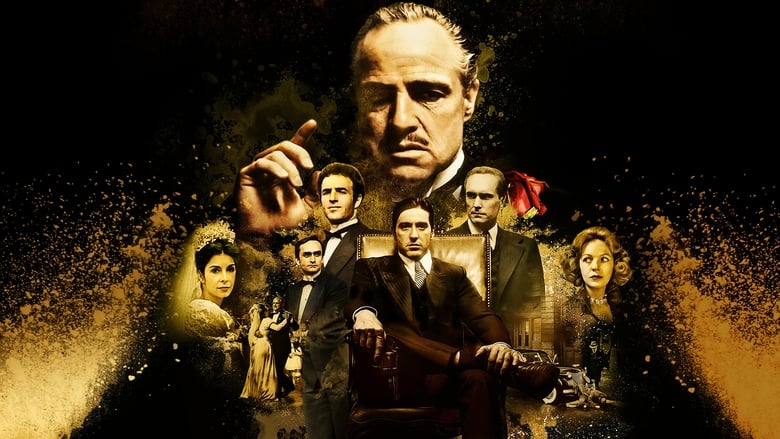Greatest movies of all time: a definitive list
From the golden age of Hollywood to modern masterpieces, these films have transcended generations, captivating audiences with their storytelling, iconic performances, and lasting impact. This selection represents the pinnacle of cinematic achievement, offering a journey through diverse genres and unforgettable narratives.
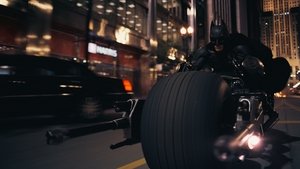


The history of cinema is a rich tapestry woven with groundbreaking narratives, unforgettable characters, and revolutionary techniques. When we talk about the 'best movies of history,' we're not just discussing entertainment; we're exploring cultural touchstones that have shaped our understanding of art, society, and the human condition. Consider Citizen Kane, often cited as a masterpiece for its innovative narrative structure and cinematography, a film that redefined what was possible in filmmaking. Or take The Godfather, a crime epic that elevated the genre and gave us some of the most memorable lines and performances in cinematic history, solidifying Marlon Brando's legendary status and introducing Al Pacino to a wider audience.
Then there are films like Schindler's List and The Shawshank Redemption, which, despite their vastly different themes, both resonate deeply with audiences for their powerful emotional impact and enduring messages of hope and resilience. It's fascinating how a film like Casablanca, made during World War II, continues to charm viewers with its timeless romance and witty dialogue, proving that true classics never fade. And who could forget the sheer spectacle and storytelling prowess of Lawrence of Arabia, a film that still impresses with its epic scope and stunning visuals, even decades later?
This list isn't just a collection of movies; it's a testament to the power of storytelling and the enduring legacy of cinematic artistry. Each film offers a unique window into its era, reflecting the social, political, and artistic currents of its time, while also delivering universal themes that remain relevant today.
14. Gone with the Wind (1939)
'Gone with the Wind' is a colossal romantic epic that captured the hearts of audiences and remains a cultural touchstone. Set against the turbulent backdrop of the American Civil War and Reconstruction era, it tells the sweeping story of Scarlett O'Hara, a headstrong Southern belle. The search for the actress to play Scarlett O'Hara was one of the most extensive in Hollywood history, with over 1,400 women interviewed before Vivien Leigh was cast. Its lavish production design, iconic performances by Leigh and Clark Gable as Rhett Butler, and Max Steiner's soaring score all contribute to its grandeur. While some aspects of the film reflect the historical context of its production, its sheer scale and dramatic power make it a significant piece of cinematic history.

13. Lawrence of Arabia (1962)
David Lean's 'Lawrence of Arabia' is a sweeping historical epic that is as vast and magnificent as the desert landscapes it portrays. Peter O'Toole's mesmerizing performance as T.E. Lawrence captures the enigmatic and complex nature of the British officer who united Arab tribes during World War I. The film was shot in Super Panavision 70, giving it an unparalleled scope and visual grandeur that truly demands to be seen on the biggest screen possible. Its stunning cinematography, meticulous attention to detail, and Maurice Jarre's stirring score create an immersive experience. It's a profound exploration of identity, leadership, and the clash of cultures, a true masterpiece of epic filmmaking.

12. The Empire Strikes Back (1980)
'The Empire Strikes Back' is widely regarded as the pinnacle of the Star Wars saga, a darker and more emotionally complex chapter that deepened the mythology. It expands on the characters and world introduced in 'A New Hope,' delivering iconic moments and shocking revelations. The famous line 'No, I am your father' was a closely guarded secret during production, known only to a handful of people to prevent leaks. The film's thrilling action sequences, the introduction of fan-favorite characters like Yoda, and its profound themes of destiny and sacrifice make it a truly exceptional sci-fi adventure. It's a film that pushed the boundaries of special effects and storytelling, solidifying its place as a cornerstone of popular culture.
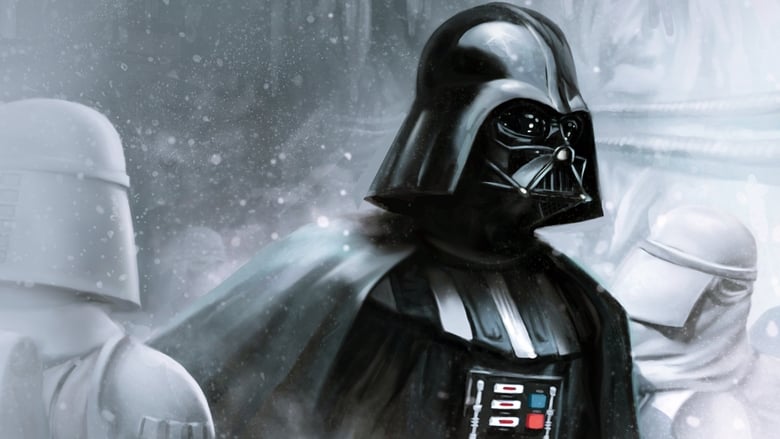
11. Fight Club (1999)
David Fincher's 'Fight Club' is a provocative and darkly satirical look at consumerism, masculinity, and identity in modern society. Based on Chuck Palahniuk's novel, the film is a mind-bending journey with an unreliable narrator that challenges viewers to question everything. The film's iconic twist ending is one of the most talked-about in cinema history, keeping audiences guessing until the very last moments. Brad Pitt and Edward Norton deliver compelling performances as the enigmatic Tyler Durden and the unnamed Narrator, respectively. Its gritty aesthetic, sharp dialogue, and anti-establishment themes struck a chord with a generation. 'Fight Club' is a challenging but endlessly fascinating film that continues to spark debate and discussion.

10. Casablanca (1943)
'Casablanca' is a timeless romantic drama that perfectly captures the mood of wartime intrigue and impossible choices. Humphrey Bogart's Rick Blaine and Ingrid Bergman's Ilsa Lund deliver performances that are etched into cinematic history, their chemistry palpable amidst the backdrop of political turmoil. Many of the film's most famous lines, including 'Here's looking at you, kid,' were not initially in the script but emerged during production. Its witty dialogue, intricate plot, and the unforgettable theme song 'As Time Goes By' contribute to its enduring appeal. It's a story of sacrifice, patriotism, and love that continues to captivate audiences with its blend of cynicism and idealism. A true classic that never gets old.

9. The Matrix (1999)
The Wachowskis' 'The Matrix' was a seismic event in cinema, a groundbreaking sci-fi action film that blended philosophical concepts with revolutionary visual effects. Its 'bullet time' sequences changed action filmmaking forever, and its exploration of reality, free will, and rebellion resonated deeply with audiences worldwide. The film's iconic green tint was a deliberate choice to differentiate the 'Matrix' world from the 'real' world, adding to its distinctive aesthetic. Keanu Reeves as Neo leads us down the rabbit hole, questioning everything we thought we knew. The film's influence is undeniable, impacting everything from video games to fashion. It's a thought-provoking spectacle that continues to inspire discussion and remains a benchmark for innovative storytelling.

8. GoodFellas (1990)
Martin Scorsese's 'GoodFellas' is a masterclass in gangster cinema, a visceral and exhilarating plunge into the lives of mobsters in New York. Based on the true story of Henry Hill, the film is narrated with a rapid-fire pace and a stylish visual flair that pulls you into their dangerous world. Joe Pesci's electrifying performance as Tommy DeVito, which earned him an Oscar, was so intense that some of his most famous lines were improvised. The film's use of popular music, fast-paced editing, and compelling voice-overs creates an immersive experience. It's a cautionary tale about the allure and ultimate downfall of a life of crime, showcasing Scorsese's unparalleled ability to craft compelling narratives about morally ambiguous characters. A true powerhouse of a film.
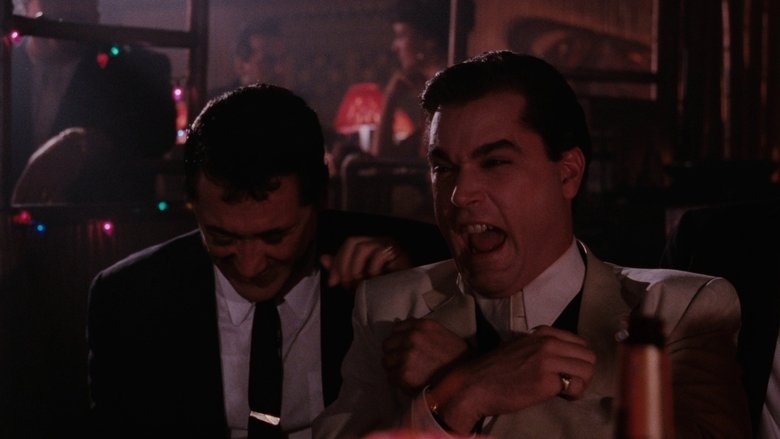
7. The Lord of the Rings: The Return of the King (2003)
'The Lord of the Rings: The Return of the King' is the epic conclusion to Peter Jackson's monumental trilogy, a truly breathtaking cinematic achievement that brings J.R.R. Tolkien's world to glorious life. The sheer scale of the battles, the emotional weight of the journey, and the satisfying culmination of so many character arcs make this a truly fulfilling experience. Winning all 11 Academy Awards it was nominated for, it shares the record for most Oscars won by a single film, a testament to its widespread critical acclaim. The visual effects were revolutionary for their time, and Howard Shore's majestic score perfectly captures the grandeur and pathos of Middle-earth. It's a fantasy film that transcends its genre, a story about friendship, sacrifice, and the fight against overwhelming darkness that resonates deeply.

6. Pulp Fiction (1994)
Quentin Tarantino's 'Pulp Fiction' exploded onto the scene, redefining independent cinema and leaving an indelible mark on pop culture. Its non-linear storytelling, sharp, witty dialogue, and an eclectic soundtrack create a uniquely stylish and endlessly rewatchable experience. The film's iconic dance scene between Uma Thurman and John Travolta was largely improvised, adding to its spontaneous charm. It's a mosaic of interconnected stories featuring hitmen, boxers, and mob bosses, all presented with Tarantino's signature blend of dark humor and unexpected twists. The performances are all top-notch, with Travolta's career resurgence being a highlight. 'Pulp Fiction' isn't just a movie; it's a cultural phenomenon that continues to be dissected and celebrated for its audacious creativity.

5. Citizen Kane (1941)
Orson Welles' 'Citizen Kane' is a cinematic landmark, a film that, despite its age, feels incredibly modern and continues to influence filmmakers today. Its non-linear narrative, deep-focus cinematography (a revolutionary technique at the time), and innovative use of sound were groundbreaking. Welles, at just 25 years old, was given unprecedented creative control, leading to a film that truly broke the mold. The story, a sprawling investigation into the life of newspaper magnate Charles Foster Kane, is a fascinating character study wrapped in a mystery. The film's impact on cinematic language is undeniable, and its exploration of power, ambition, and the elusive nature of truth remains as relevant as ever. It's a masterclass in storytelling that demands repeated viewings to fully appreciate its layers.

4. Schindler's List (1993)
Steven Spielberg's 'Schindler's List' is a stark, essential piece of cinema that confronts the horrors of the Holocaust with unflinching honesty and profound humanity. Shot in black and white, the film gains an almost documentary-like quality, emphasizing the stark reality of the events. Liam Neeson's portrayal of Oskar Schindler is powerful, showing the transformation of a cynical businessman into a reluctant savior. Did you know Spielberg initially offered the directing role to Martin Scorsese, believing it needed to be directed by a Jewish filmmaker? Scorsese, however, felt it should be directed by a Jewish filmmaker and encouraged Spielberg to take it, saying 'You're Jewish, and you're good enough to do it.' The film's haunting score by John Williams, featuring the poignant violin solos, adds another layer of emotional weight. It's a difficult watch, but an absolutely crucial one, serving as a powerful reminder of history and the enduring spirit of good in the face of unspeakable evil.
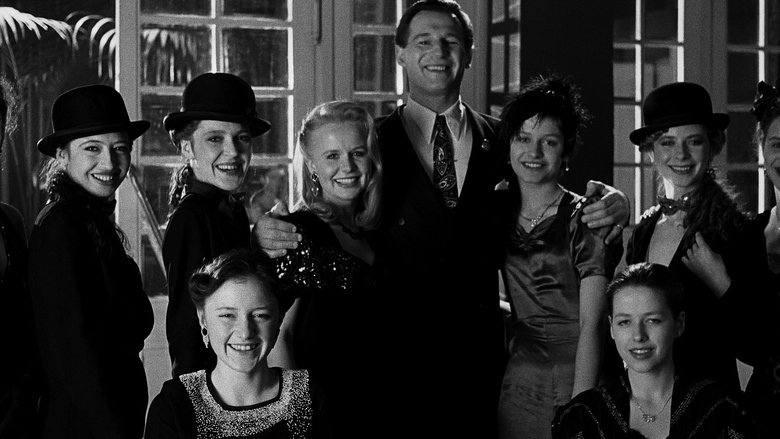
3. The Dark Knight (2008)
Christopher Nolan's 'The Dark Knight' isn't just a superhero movie; it's a gritty, sprawling crime epic that elevates the genre to new heights. Heath Ledger's Joker is simply mesmerizing, a performance so utterly transformative and chilling that it redefined what a comic book villain could be. Ledger's dedication was legendary; he famously isolated himself for weeks to prepare, journaling and experimenting with voices to embody the chaos of the character. The film's intricate plot, intense action sequences, and moral complexities keep you on the edge of your seat, questioning the nature of heroism and villainy. Christian Bale's Batman is a tormented figure, pushing the boundaries of justice in a city teetering on the brink. This isn't just entertainment; it's a profound exploration of anarchy versus order, wrapped in a blockbuster package. It's a cinematic achievement that continues to influence and inspire.

2. The Shawshank Redemption (1994)
'The Shawshank Redemption' isn't just a movie; it's an experience that resonates deeply within your soul. Frank Darabont's adaptation of Stephen King's novella 'Rita Hayworth and Shawshank Redemption' is a powerful testament to hope, perseverance, and the human spirit's unyielding desire for freedom. It's fascinating to note that despite its now-legendary status, the film wasn't a box office success upon its initial release! Its true recognition came through word-of-mouth and home video, solidifying its place as a beloved classic. Morgan Freeman's narration is pure poetry, guiding us through the grim realities of prison life with a voice that feels like a warm embrace. Tim Robbins' portrayal of Andy Dufresne is equally compelling, a quiet strength that burns brighter than any despair. The film's emotional depth and inspiring message make it a must-watch, reminding us that even in the darkest places, hope can be a good thing, maybe the best of things.

1. The Godfather (1972)
Stepping into the world of 'The Godfather' is like being invited into a secret society, one where loyalty, family, and power intertwine with devastating consequences. Francis Ford Coppola's masterpiece isn't just a gangster film; it's a profound character study and a sweeping epic that redefined cinema. Marlon Brando's performance as Vito Corleone is nothing short of legendary, earning him an Oscar that he famously declined. Did you know Al Pacino almost wasn't cast as Michael Corleone? Studio executives initially wanted Robert Redford or Warren Beatty, but Coppola fought tirelessly for Pacino, seeing in him the quiet intensity needed for the character's transformation. The film's rich tapestry of storytelling, iconic score by Nino Rota, and groundbreaking cinematography by Gordon Willis create an atmosphere that pulls you in and never lets go. It's a timeless classic that continues to influence filmmakers and captivate audiences, proving that some stories are truly eternal.
